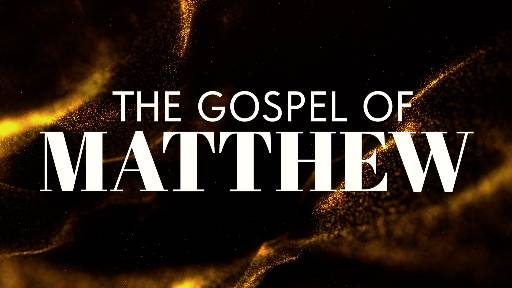-
Posting The Watch
Contributed by Chip Monck on Nov 28, 2017 (message contributor)
Summary: A sermon on the imperative need for a consistant prayer life in the spiritual disciplines of a believer.
Message begins with a tie in to the previous message:
Last week Matthew 21:12-13 (read)
- Jesus in the temple not happy with what it had become, and what it wasn’t
- The Next Day – Jesus curses a fig tree, and spends some time teaching in parables
- He is challenged by the Pharisees and the Sadducees on taxes and the resurrection
- He preaches a message to the crowds that my Bible labels - “Seven Woes to the Scribes and Pharisees”
How’s that for a confrontational teaching?
- Then, with His heart broken by all He has seen, He laments over Jerusalem
- Read Matthew 23:37-38
That brings us to chapter 24. While getting ready to leave the city, Jesus’ disciples are marveling over the beauty of the temple, and Jesus sees an open door for some teaching.
This teaching will later take on the label “The Olivet Discourse”:
He begins to teach about the end of the age, the tribulation and His second coming
In here is teaching that is pivotal in some of the pre- and post-tribulation debates
Another sign of my aging is my increasing interest in such reflections
i.e. Matthew 24:29, an anchor verse for post-tribulation (read through v. 31)
i.e. Mathew 24:37 (read through v. 41)
A question for reflection: In the days of Noah, who disappeared?
But before we get too side tracked this morning. Regardless of pre-trib, post-trib, pre-millennial, post-millennial, a-millennial or just plain Kentuckian, when Jesus speaks of the end of the age He has some instruction and advice that He gives to the disciples.
Now, can we all agree that we are closer to the end of the age, to Jesus return then we were 50 years ago? Amen?
Then it would be wise for us to take notice of, and head Jesus’ advice in this passage. And this is what He tells the disciples. Matthew 24:42 (read through 44).
Jesus tells the disciples, and I believe us today, that we are to stay awake. Or as other versions translate it, watch. This is derived from the Greek: gray-gor-yoo-o (repeat)
The Meaning of grayporgyooo: to give strict attention to, to be cautious, to take heed lest some calamity overtake you.
It would become a word the disciples would become very familiar with over the next few days. Turn with me to Matthew 26:36 (read through verse 46 – highlighting phrases)
“Watch and Pray” – Redundancy for emphasis
Jesus establishes a connection that will continue –
Colossians 4:2 (read)
Highlight - I Thessalonians 5:6 (Be watchful) & 17 (Pray continually)
In fact, more than simply connected, I would suggest they are almost synonymous.
Praying is the way that we keep watch. Praying is keeping watch.
Another end-times passage: Mark 13:32 (read through verse 37)
If meant literally, we would all be falling asleep on the job, right? Obviously Jesus is not telling us we have to literally stay awake at all times. Never going to sleep. Instead, he is referring to a spiritual state of mind. A spiritual awareness. A spiritual preparedness. A spiritual watchfulness. And as we have seen from this language connecting these two words, that comes through prayer.
To be awake, is to be continually, spiritually alert through prayer. The night and day prayers of the people that Solomon spoke of at the dedication of the temple. The unrelenting prayer that Jesus spoke of in the parable of the persistent widow. The type of prayer life that says no matter what hour the master returns, He will find us keeping the watch.
Please understand today. This is not a momentary, spurty, temporary action or state of mind. It is a critical, ongoing spiritual posture, and for a number of reasons.
Matthew 26:41 gave us one reason that the posture of watchfulness, the posture of prayer is critical in the life of the believer. Jesus said (re-read).
A. LEST WE ENTER INTO TEMPTATION
Through prayer, we are able to take the willingness of the spirit, and strengthen the weakness of the flesh. Strengthen the resolve of our human nature by binding it to the heart of God.
Why else must we keep watch? Why else must we assume a continual posture of prayer?
I Peter 5:8 tells us, “Be sober-minded; be watchful. Your adversary the devil prowls around like a roaring lion, seeking someone to devour.”
We are to be watchful, lest we fail. . .
B. TO BE AWARE OF THE ENEMY
On the watch. In the engaging of our weapons of warfare. In our mindset of prayer. We will find ourselves reminded that we are in a spiritual battle that requires a spiritual attentiveness, and if we let down our guard, there is an enemy waiting to devour us.
Breakdown: Correlation between post-tribulation believers, prayer warriors, and concern for the falling away, the “unpreparedness” of believers.

 Sermon Central
Sermon Central


